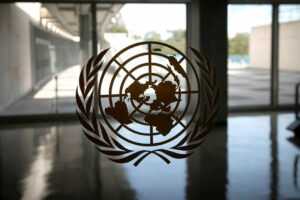THE PHILIPPINES has submitted its instrument of ratification of a United Nations (UN) convention recognizing the use of electronic communications in trade contracts, the Department of Foreign Affairs (DFA) said in a statement on Friday.
The instrument was deposited by the Philippine Mission to the UN in New York, the DFA said.
Philippine Mission Deputy Permanent Representative Ariel R. Peñaranda, speaking at Digital Week of the 55th annual session of the United Nations Commission on International Trade Law on Thursday, called the treaty a “significant milestone in strengthening our cross-border international trade with key trading partners, some of whom are already States Parties, as it ensures that fundamental principles of e-commerce are recognized and enforced across borders.”
With the ratification of the Convention on the Use of Electronic Communications in International Contracts, the Philippines “will also move forward with the establishment of guidelines for cross-border mutual recognition of digital signatures, electronic communication and contracts, noting that the Convention facilitates technology-neutral mutual recognition among parties,” Mr. Peñaranda said.
The convention, which was adopted on November 2005 and came into force in March 2013, mainstreams the use of contracts concluded and other communications exchanged electronically, recognizing them as valid and enforceable.
“Ratification… sends a strong signal of the Philippines’ readiness to adopt a modern and predictable legal regime for international electronic contracts. It will further bolster our efforts to promote cross-border transactions,” former Trade Secretary Ramon M. Lopez has said.
Mr. Peñaranda said signing on to the convention is in line with the Philippines’ E-Commerce Roadmap.
The Philippines signed the convention in September 2007. It is the 16th state-member of the convention and the second Association of Southeast Asian Nations state to ratify it.
In a 2021 United Nations Global Survey on Digital and Sustainable Trade Facilitation, the Philippines scored 86%, higher than the Southeast Asia average of 74%. — Alyssa Nicole O. Tan
